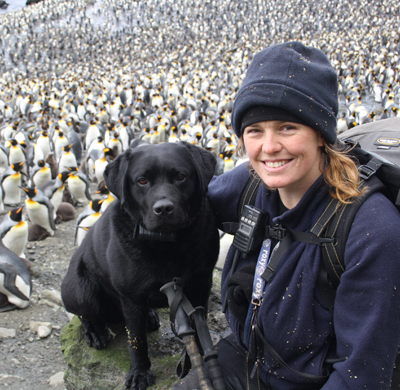Dr Melissa Houghton
Research Associate
Growing up in Tasmania, Melissa developed a natural passion for wild places and island conservation. Her persistent drive to manage invasive species for conservation led Melissa to work with a number of island eradication programs, notably as a dog handler on sub-Antarctic Macquarie Island hunting rabbits.
During her Masters project, she identified the pathways and vectors of invertebrate transfer to the Antarctic region. From this seed of interest, an entomological fascination bloomed. Melissa is now experienced in springtail taxonomy, invasive species management, invertebrate biosecurity, diagnostics and ecological monitoring through invertebrate surveys.
Her PhD project investigated post-mammal eradication ecosystem recovery through macro-invertebrate surveys of sub-Antarctic islands. She established a post-eradication baseline for invertebrate communities on two islands, identified bioindicators for effective future monitoring, and assessed the impacts of non-native invertebrates through their interactions with native species. Her PhD project showed that terrestrial invertebrates can be used as environmental indicators to measure trends in ecosystem recovery and to assess the conservation return-on-investment for large-scale eradications programs. This project also identified traits of introduced invertebrates that contribute to their successful establishment, thereby informing improved biosecurity for the Antarctic region.
Melissa is currently engaged as a diagnostic entomologist with the Tasmanian state government.


